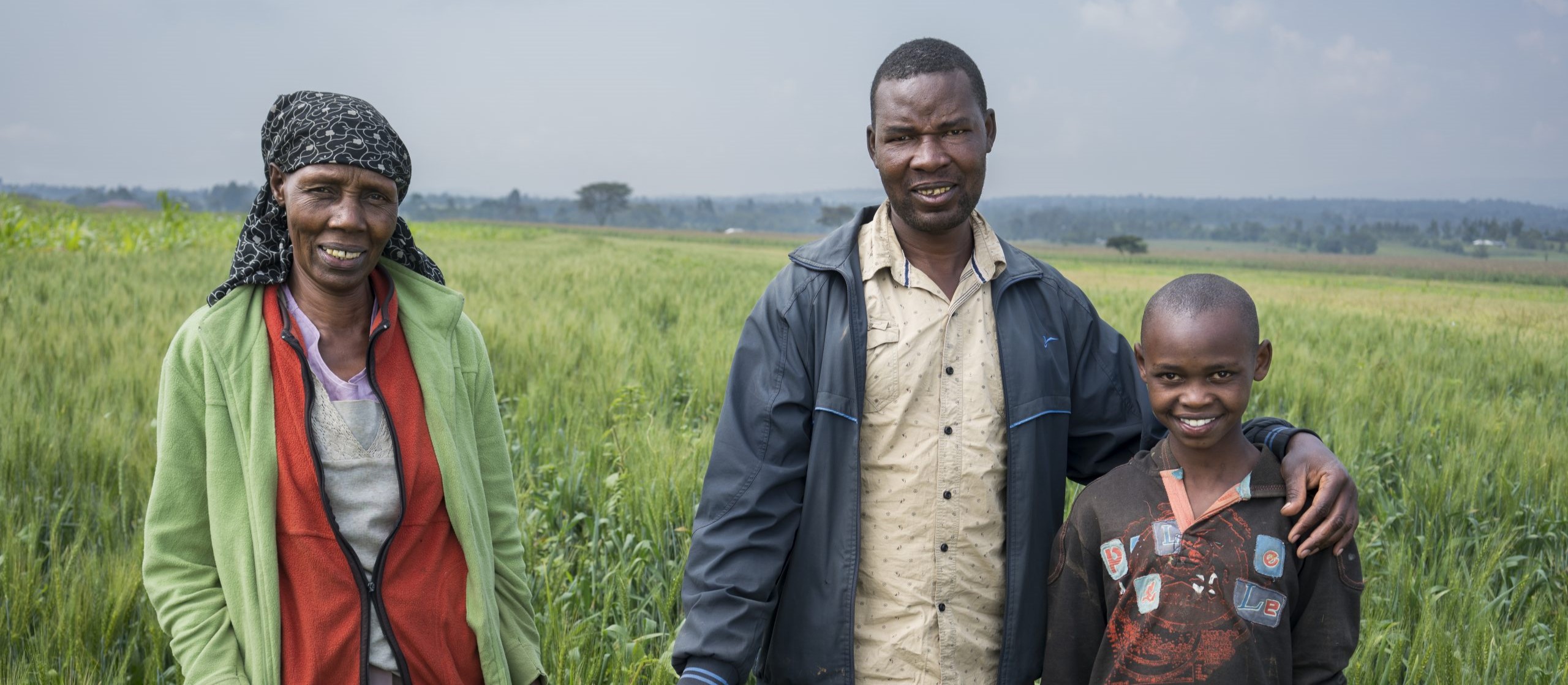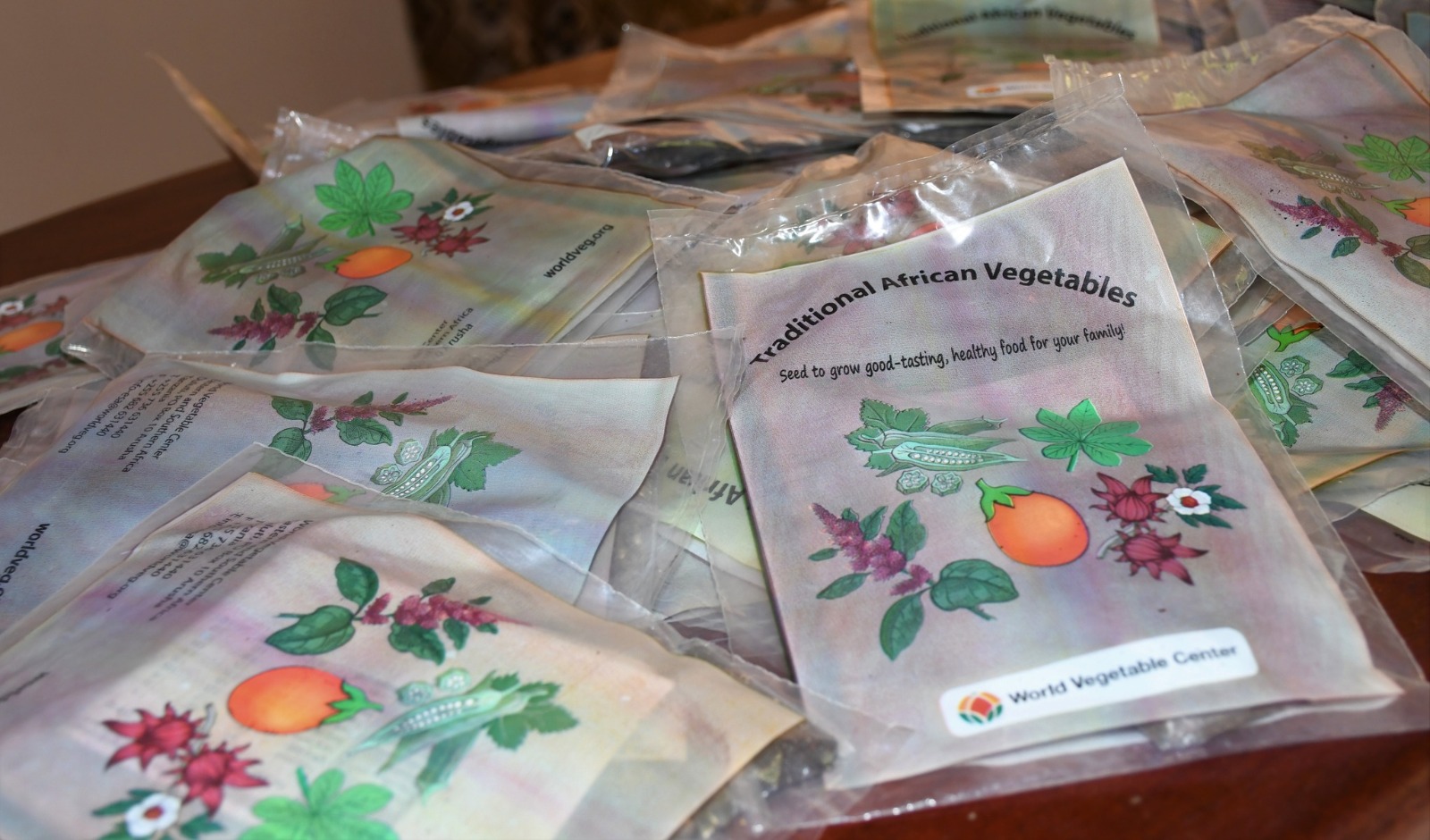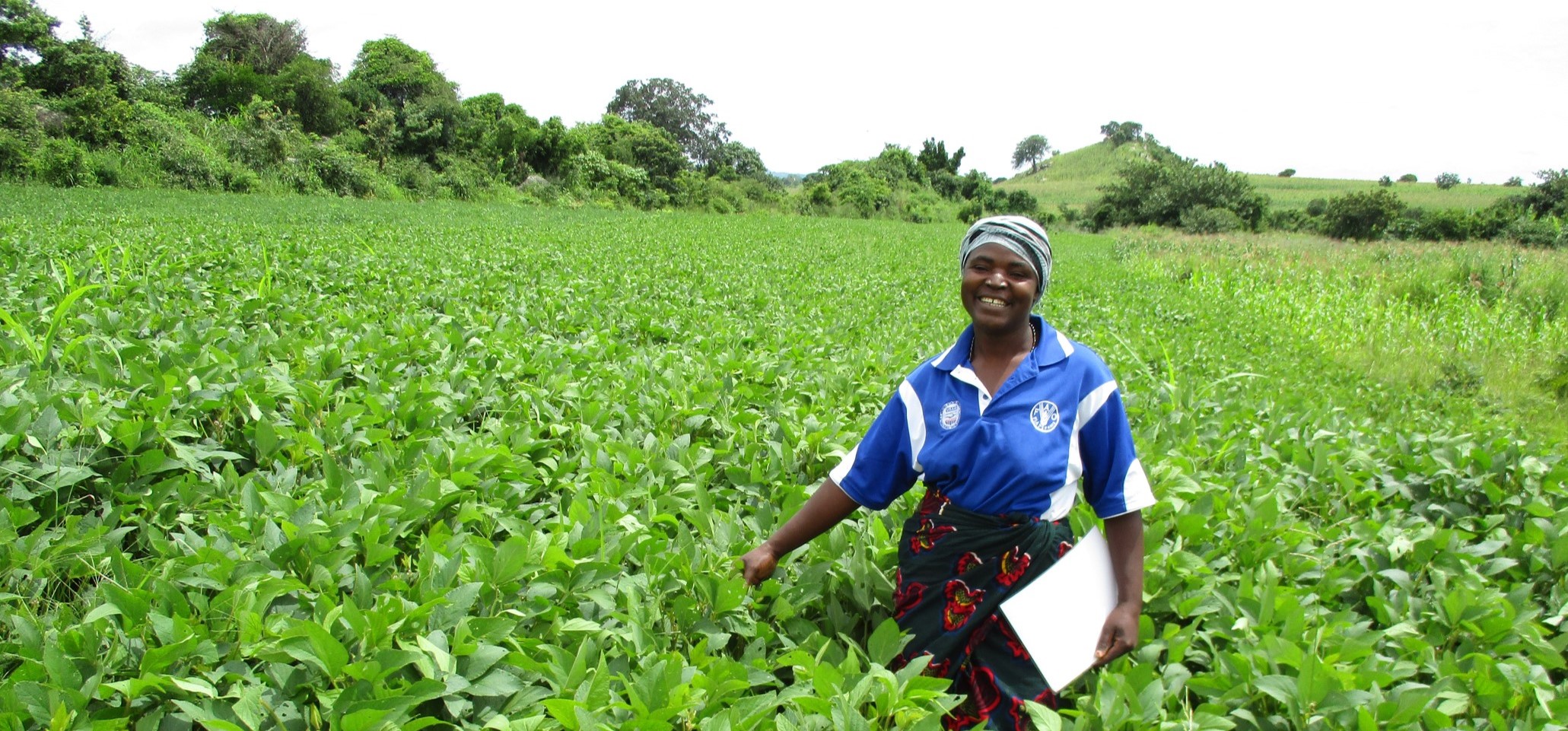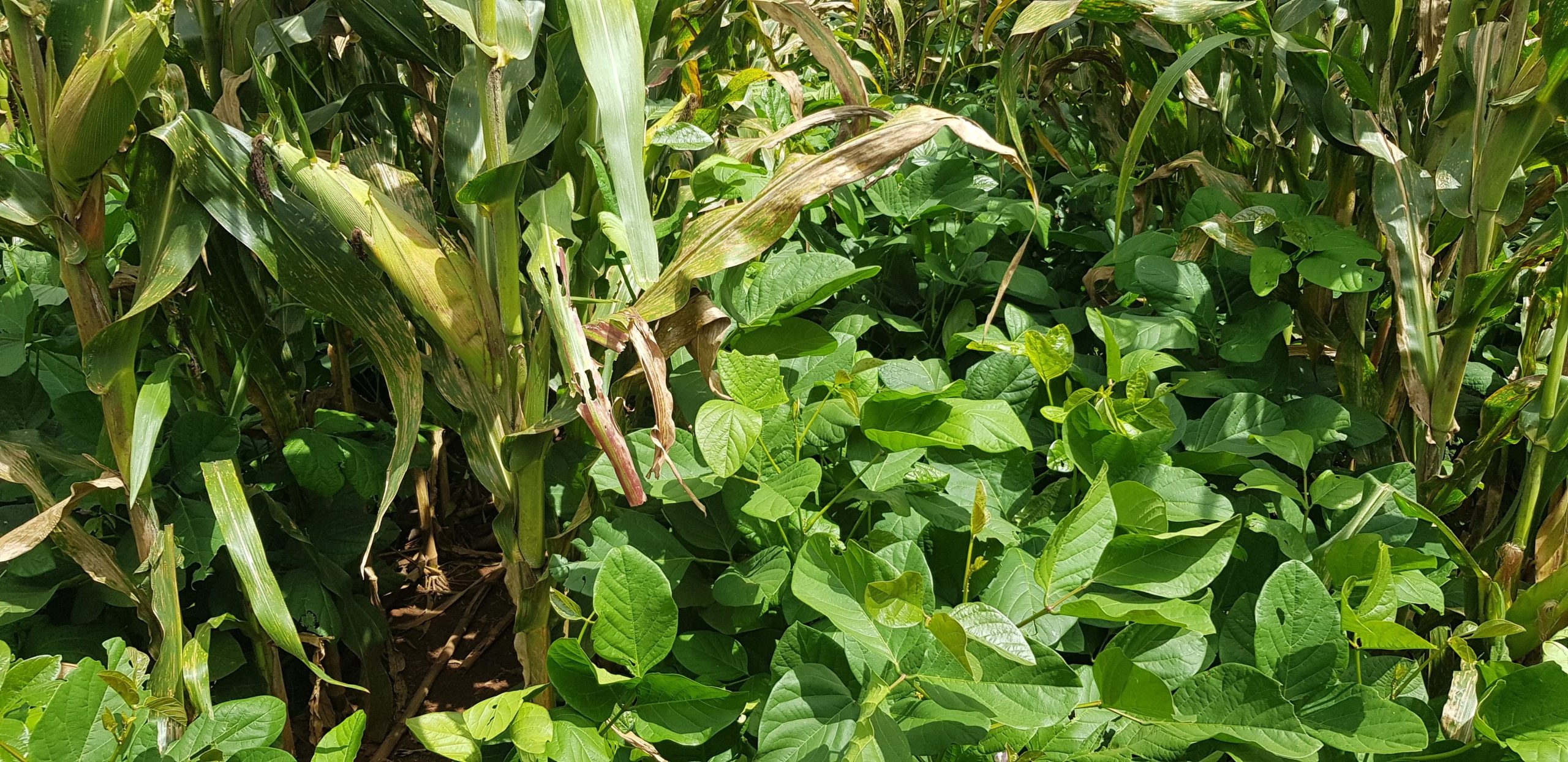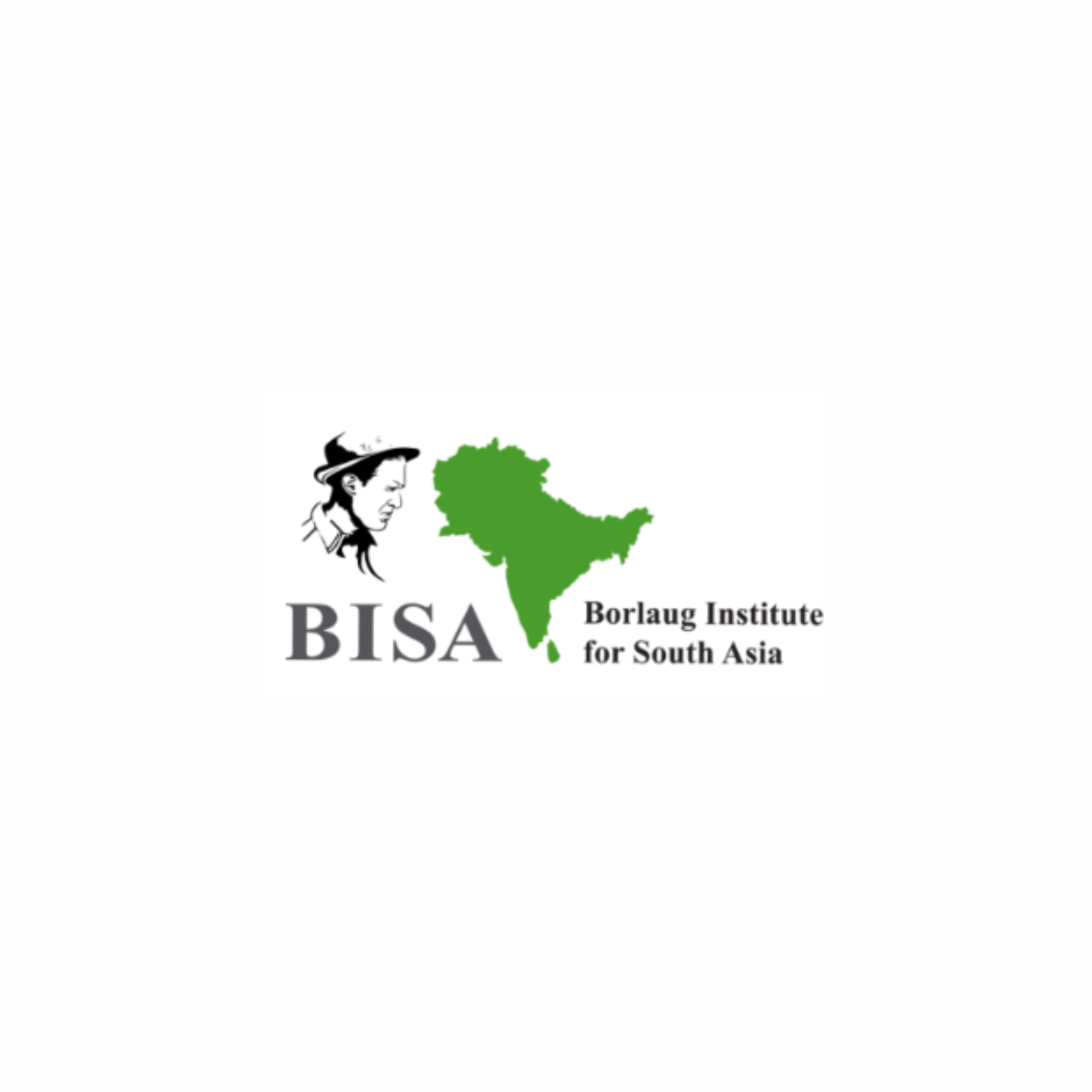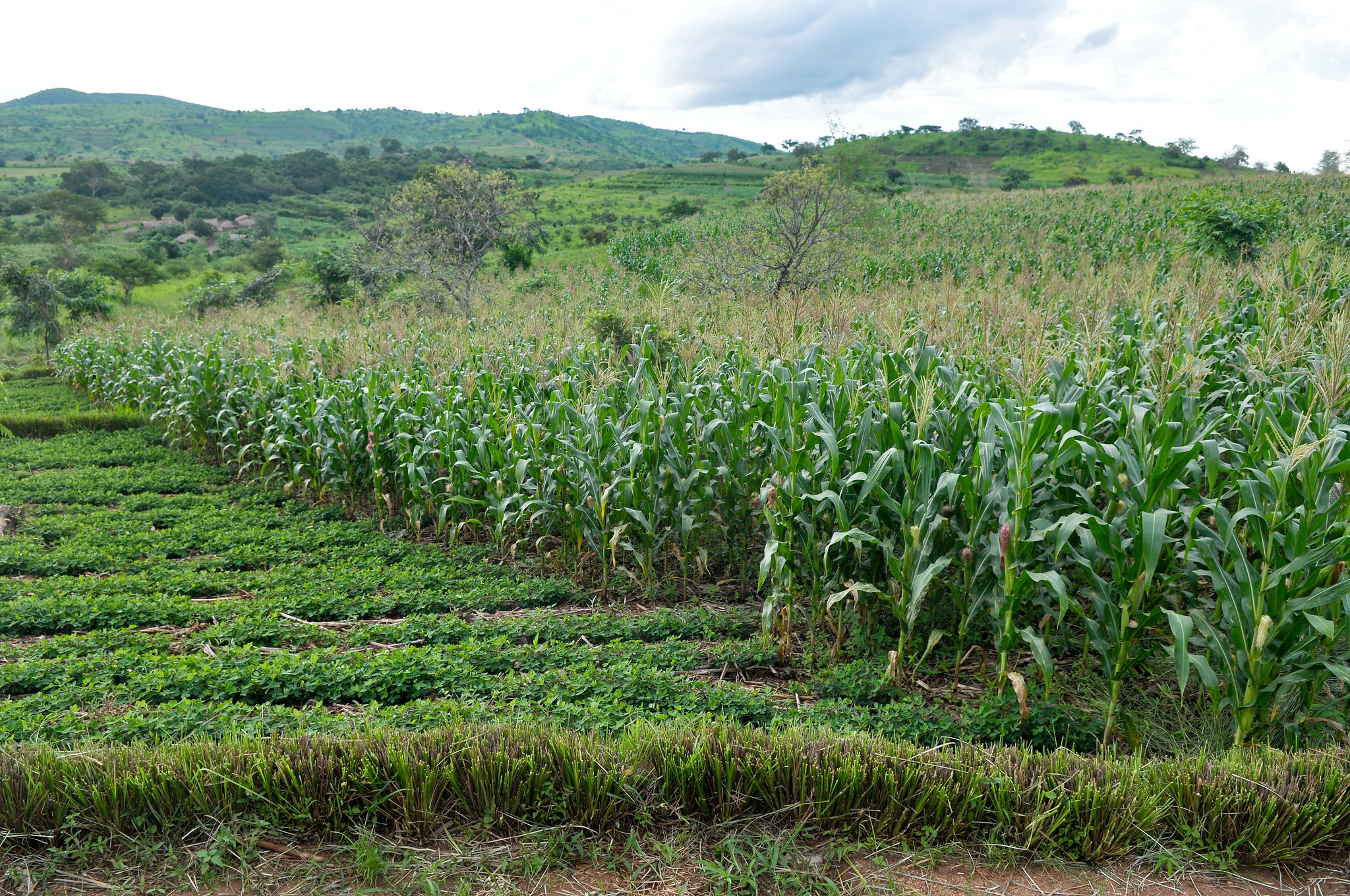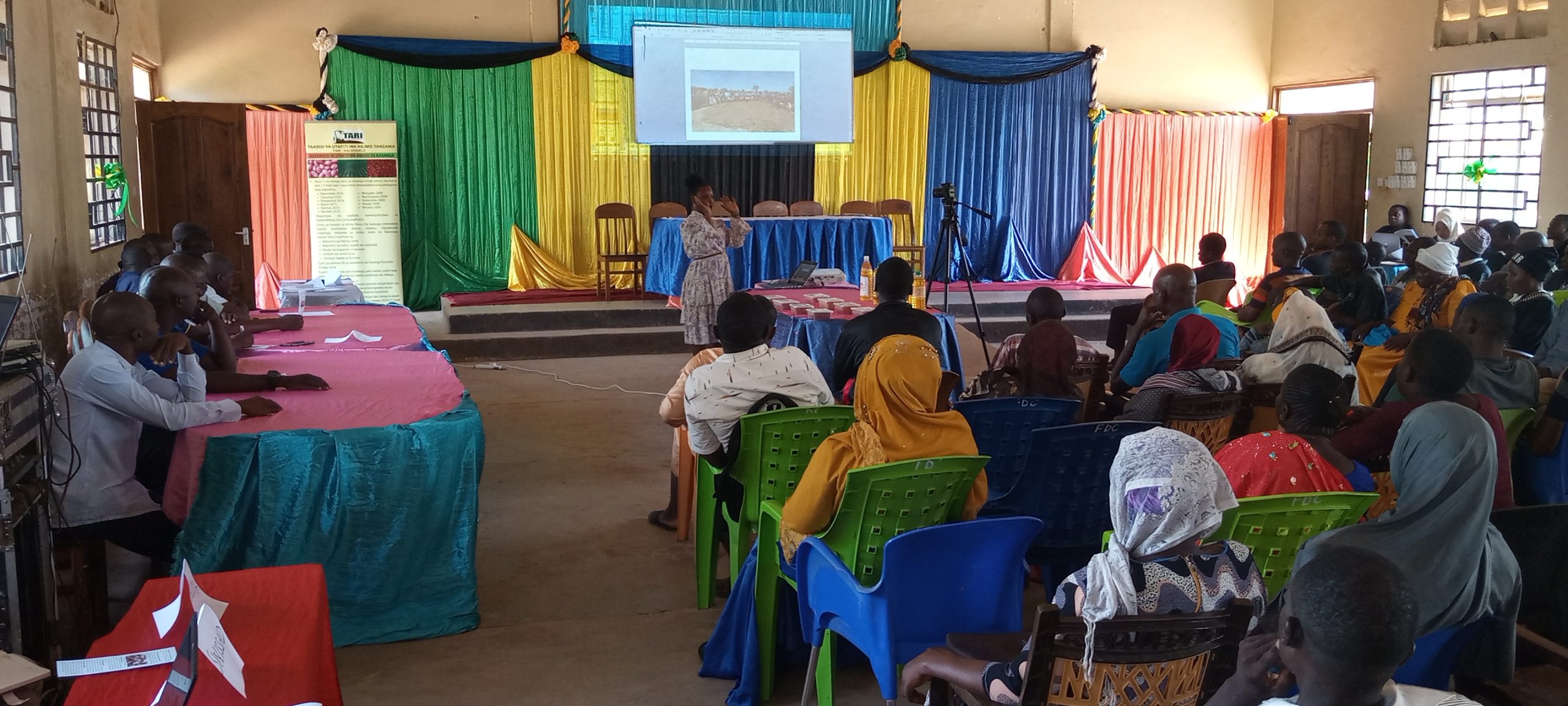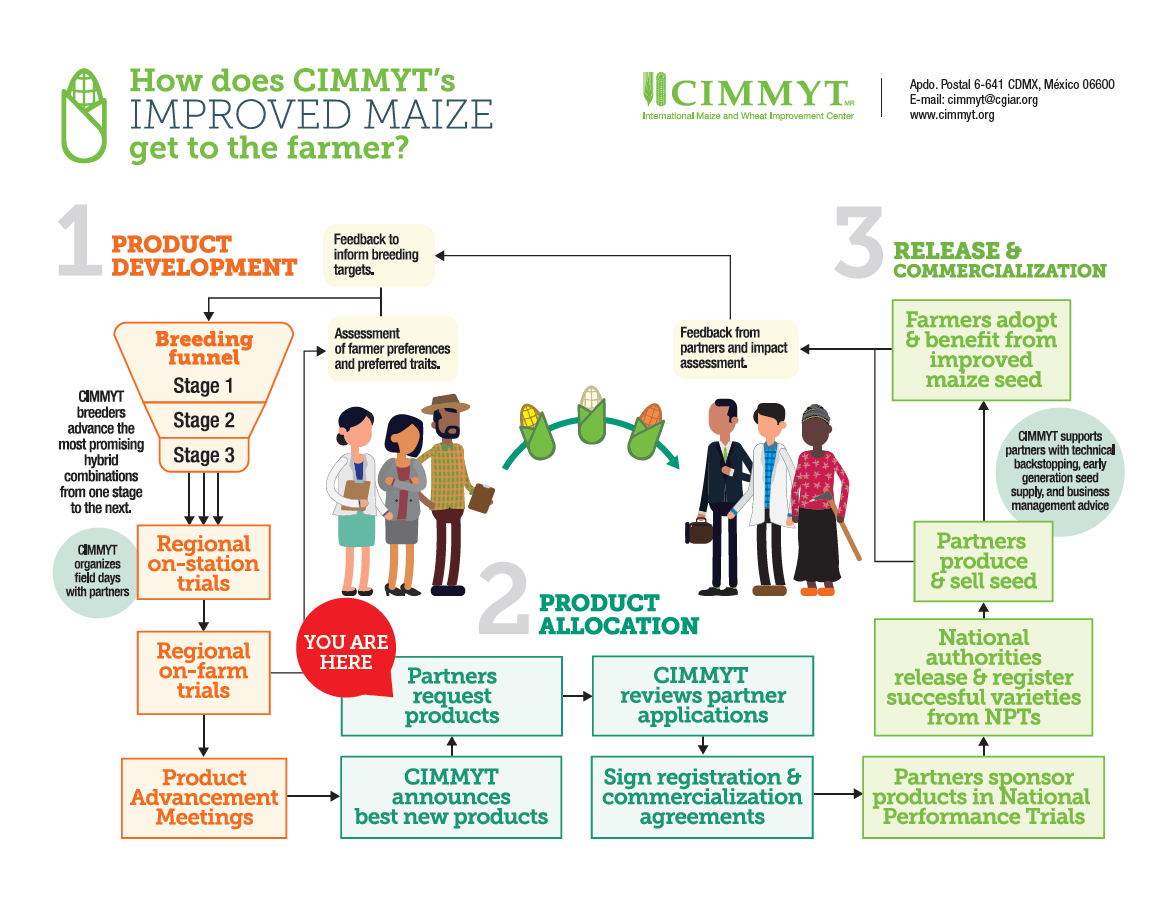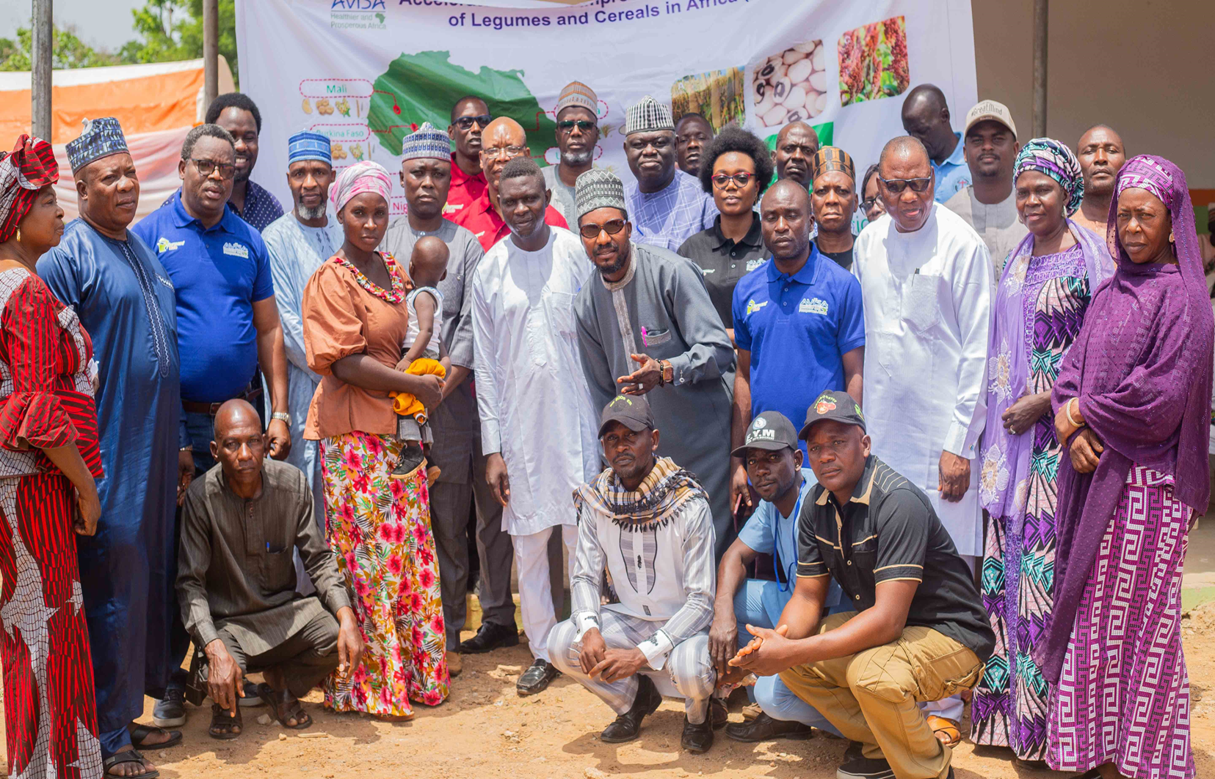Nutrition, health and food security
As staple foods, maize and wheat provide vital nutrients and health benefits, making up close to two-thirds of the world’s food energy intake, and contributing 55 to 70 percent of the total calories in the diets of people living in developing countries, according to the U.N. Food and Agriculture Organization. CIMMYT scientists tackle food insecurity through improved nutrient-rich, high-yielding varieties and sustainable agronomic practices, ensuring that those who most depend on agriculture have enough to make a living and feed their families. The U.N. projects that the global population will increase to more than 9 billion people by 2050, which means that the successes and failures of wheat and maize farmers will continue to have a crucial impact on food security. Findings by the Intergovernmental Panel on Climate Change, which show heat waves could occur more often and mean global surface temperatures could rise by up to 5 degrees Celsius throughout the century, indicate that increasing yield alone will be insufficient to meet future demand for food.
Achieving widespread food and nutritional security for the world’s poorest people is more complex than simply boosting production. Biofortification of maize and wheat helps increase the vitamins and minerals in these key crops. CIMMYT helps families grow and eat provitamin A enriched maize, zinc-enhanced maize and wheat varieties, and quality protein maize. CIMMYT also works on improving food health and safety, by reducing mycotoxin levels in the global food chain. Mycotoxins are produced by fungi that colonize in food crops, and cause health problems or even death in humans or animals. Worldwide, CIMMYT helps train food processors to reduce fungal contamination in maize, and promotes affordable technologies and training to detect mycotoxins and reduce exposure.
Millers in Nigeria laud the release to farmers of co-developed, CIMMYT-derived wheat varieties
 Climate adaptation and mitigation
Climate adaptation and mitigation
Wheat yield and adaptation demonstrate the power of collaborative research, miller group spokesperson said.
Gov. Little’s Mexico trade mission strengthens trade opportunities for Idaho businesses
 Innovations
Innovations
Source: Office of the Governor (1 Dec 2023)
Scaling up health diet seed kits in Zanzibar
 Capacity development
Capacity development
Health diet seed kits are enhancing food and nutrition security in Zanzibar.
CGIAR Initiative on Diversification in East and Southern Africa
 Gender equality, youth and social inclusion
Gender equality, youth and social inclusion
LIPS-Zimbabwe empowers farmers through innovative intercropping trials
 Climate adaptation and mitigation
Climate adaptation and mitigation
LIPS-Zimbabwe has been at the frontline of introducing innovations to farmers in Mutoko and Buhera by integrating intercropping trials.
EU-funded project refurbishes Gwanda veterinary lab, boosting livestock disease control
 Capacity development
Capacity development
Source: The Free Library (22 Nov 2023)
The LIPS-ZIM program to enhance livestock productivity and control diseases affecting smallholder farmers.
CIMMYT’s Hub Model – a learning field in Mexico for the Indian Scientists
 Climate adaptation and mitigation
Climate adaptation and mitigation
Resilience Building through agroecological intensification in Zimbabwe (RAIZ)
 Climate adaptation and mitigation
Climate adaptation and mitigation
Nevada researcher aims to improve sorghum hybrids for dairy cattle feed
 Nutrition, health and food security
Nutrition, health and food security
Source: Nevada Today (20 Nov 2023)
CIMMYT partnering with Melinda Yerka, an associate professor in the Department of Agriculture, Veterinary & Rangeland Sciences and her team to extend the availability of sorghum varieties.
Boosting groundnut value chains
 Innovations
Innovations
A stakeholder meeting held with the aim of establishing a platform for dialogue among stakeholders involved in groundnut production and distribution laid the foundation for the development of groundnut farming in Tanzania.
Farmers’ Hub launched in Nigeria to boost food security and agricultural development
 Capacity development
Capacity development
AVISA Farmers’ Hub initiative aims to empower local farmers, enhancing food security and agricultural development in North Central Nigeria.
Scientist emphasizes digital agro-advisories utilization
 Capacity development
Capacity development
Source: The Horn (14 Nov 2023)
CIMMYT scientist, Kindie Tesfaye highlights the role of user-centric climate information services and advisories in empowering farmers.
Top food policy expert hails nation’s efforts to bolster its grain resilience
 Climate adaptation and mitigation
Climate adaptation and mitigation
Source: China Daily (15 Nov 2023)
CIMMYT Director General, Bram Govaerts, praises China’s substantial investment in science and technology for food security.
